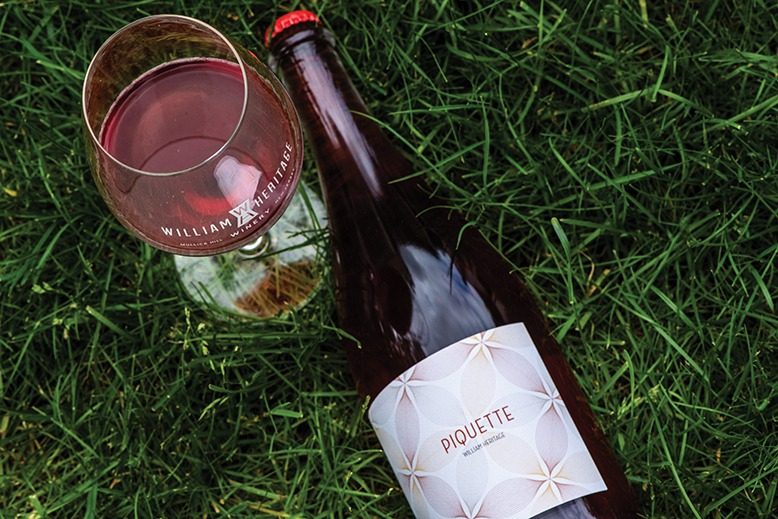
This summer, consider setting aside your trusty glass of rosé for something a bit more adventurous—piquette. It’s a wine-like spritzer, and though it’s just catching on here, piquette is a traditional beverage that may be as old as wine itself.
Piquette is made from pomace—the skins, seeds, stems and pulp that remain after grapes are pressed for wine. It’s a triumph of waste-not-want-not. The pomace is soaked in water for a few days, allowing native yeasts to initiate fermentation. After fermentation finishes, some producers add wine, previously made from the grapes, to boost acidity. Others may add honey or another sweetener, which induces a secondary fermentation in the bottle.
The result is a low-alcohol beverage (usually 4–9 percent abv, compared to wine’s typical 12–15 percent), displaying bright flavors that vary with the grapes used. All types of grapes are suitable, so piquettes range in color from pale straw to ruby red.
Once popular among vineyard workers and frugal farmers in 19th-century Europe, piquette was largely forgotten until Todd Cavallo, the owner and winemaker of Wild Arc Farm in New York’s Hudson Valley, came across a passage about piquette in an old book on the history of French wine. He was already looking for something to do with his mounds of pomace and began experimenting with the ancient beverage.
In 2018, Cavallo released Wild Arc’s first three piquettes, becoming the first producer in North America to do so. Other wineries across the United States, such as Maryland’s Old Westminster Winery and Troon Vineyard in Oregon, quickly followed.
[RELATED: The Rapid Rise of Hard Seltzer]
This year, William Heritage Winery in Mullica Hill released its own piquettes, the first produced in New Jersey. Richard Heritage, director of sales and marketing and the founders’ eldest son, says they are “like a wine seltzer—so light, but so refreshing.”
William Heritage offers two kinds in 750-ml bottles: a Syrah and a Stayman. Both start with Syrah grape pomace. The skins for the William Heritage Syrah Piquette are soaked in cold water for 48 hours and pressed before undergoing natural fermentation. For the Stayman, Syrah pomace is added to estate-grown Stayman apple juice instead of water, creating a grape-apple hybrid.
Both are fermented using wild yeasts occurring naturally in the grapes and the winery (as opposed to commercial yeast), and are topped off with local wildflower honey, which re-ferments in the bottle for a gentle sparkle. The piquettes are unfiltered, meaning there will be some cloudiness in the bottle (just sediment, not a bad thing).
The idea to make piquette came from winemaker Sean Comninos. He left the winery earlier this year, but Richard Heritage plans to carry on. “Instead of throwing away these grape skins,” he says, “we’re creating a new product that is really delicious and local.” You can order from the winery or buy out-of-state piquettes from Riverview Wine & Spirits in Jersey City and Court Liquors in Long Branch.



